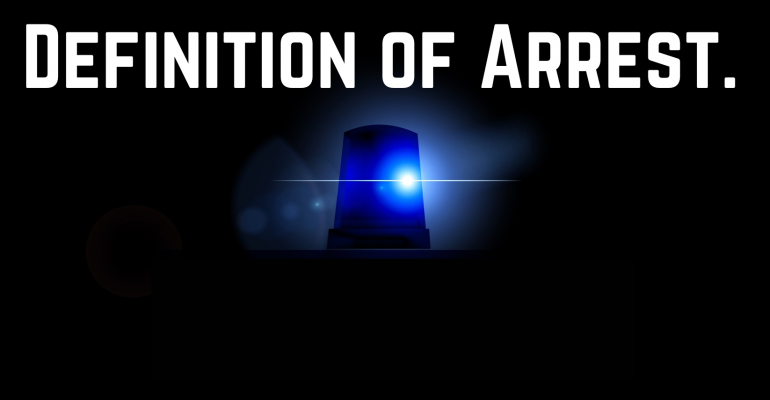Definition of Arrest.
2 June 2023 2023-06-02 9:08Definition of Arrest.
Definition of Arrest: An arrest refers to the act of restraining or restricting an individual’s freedom, either through physical means, verbal communication, or confinement, resulting in the curtailment of their personal liberty.
In New South Wales (NSW), Australia, an arrest is a legal process involving the physical apprehension and detention of an individual by authorized personnel, typically a police officer. It results in the curtailment of the person’s freedom to move or leave, as well as the deprivation of their liberty.
Under the Law Enforcement (Powers and Responsibilities) Act 2002 (LEPRA), which governs police powers in NSW, an arrest can be lawfully executed if a police officer has reasonable grounds to believe that an individual has committed or is currently engaging in an offense. The grounds for arrest encompass various situations, such as:
Suspecting the person of committing an offense.
Pursuing a person who has committed an offense and is attempting to evade capture.
Responding to a serious offense where an immediate arrest is necessary to:
Prevent the offense from continuing or recurring.
Safeguard public safety or the welfare of the individual in question.
Prevent the destruction or loss of crucial evidence.
Prevent the fabrication of evidence.During the arrest process, it is incumbent upon the police officer to effectively communicate to the individual that they are being arrested, providing a clear explanation for the arrest. Furthermore, the officer is required to inform the person of their rights, including the right to remain silent and the right to legal representation. It is imperative that the officer employs reasonable and proportionate force throughout the arrest.
It should be noted that this overview provides a general understanding of the arrest definition within the context of NSW. The specific legal provisions governing arrest and police powers may be subject to interpretation. For accurate and up-to-date information, individuals are advised to consult the relevant legislation or seek legal advice.



